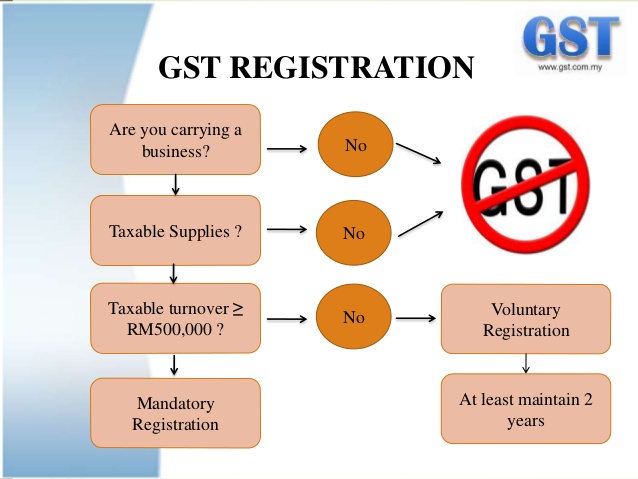How to Navigate Singapore GST Registration for Your Business
How to Navigate Singapore GST Registration for Your Business
Blog Article
Browsing the Intricacies of GST Registration: Professional Tips and Best Practices for Smoother Compliance
From deciphering registration needs to utilizing technological devices for streamlined processes, the journey towards smoother GST compliance is nuanced and diverse. Keep tuned to reveal important strategies and understandings that can aid companies steer with the complexities of GST registration with finesse and self-confidence.
Comprehending GST Registration Requirements

In enhancement to turnover limits, services participating in interstate sales or offering taxable services might likewise be called for to sign up for GST, even if their turnover is listed below the prescribed limit (Singapore GST Registration). Understanding these thresholds and requirements is necessary to stay clear of fines and ensure smooth procedures within the lawful structure
Furthermore, organizations need to gather and prepare the needed documents, such as evidence of identification, address, business unification, and savings account information, prior to initiating the GST registration process. Failing to provide precise information or meet the registration deadlines can lead to penalties or various other lawful effects. Therefore, companies ought to stay notified about the details GST registration demands relevant to their procedures to keep conformity and prevent potential problems.
Organizing Essential Documentation
Companies embarking on the GST registration procedure must carefully put together and organize the essential documents required for submission. The vital files commonly needed for GST enrollment include proof of organization registration or consolidation, address and identification evidence of the service owners or partners, financial institution account details, evidence of major place of company, and permission types. Making sure that these papers are conveniently available and organized can enhance the registration procedure and stop denials or delays.
To efficiently organize important paperwork, businesses should produce a centralized system for saving and classifying the called for paperwork (Singapore GST Registration). Making use of electronic storage remedies can aid keep very easy gain access to and make certain that records are safely stored. Furthermore, establishing a checklist of all required documents can act as a useful device to track what has actually been gathered and what is still required for entry

Leveraging Technology for Effectiveness
Enhancing functional effectiveness through technical assimilation is paramount for modern organizations browsing the complexities of GST enrollment. One of the key means modern technology can help in GST enrollment is via the use of automated software solutions.
Additionally, technology can help with seamless communication with tax obligation authorities. On the internet portals and interaction tools make it possible for companies to send papers, deal with questions, and get updates in a more efficient way. This not only speeds up the registration procedure yet additionally helps in keeping reliable and clear communication with the relevant authorities.
Moreover, cloud-based storage solutions supply a safe system for services to store and access their monetary information, making certain compliance with GST record-keeping demands. By streamlining information storage space and automating procedures, businesses can boost their total performance and accuracy in GST registration treatments.
Proactive Conformity Monitoring

To guarantee reliable aggressive compliance monitoring, businesses should develop robust internal controls, conduct periodic audits, and take advantage of automation devices for real-time monitoring of GST deals. Routine training sessions for staff members on GST conformity demands can likewise help in developing a culture of conformity within the company. In addition, engaging with tax obligation professionals or specialists can offer useful insights and guidance on browsing complex GST laws.
Involving With Specialist Specialists
Engaging skilled tax consultants can considerably boost a business's understanding and conformity with intricate GST regulations. Expert experts get redirected here bring a wealth of knowledge and experience to the table, assisting businesses browse the complexities of GST registration effortlessly. By leveraging their knowledge, business can guarantee precise filings, minimize the risk of errors, and remain updated with the current governing adjustments.
When engaging with expert consultants, it is vital to choose specialists with a strong record in GST conformity (Singapore GST Registration). Seek professionals who have a deep understanding of the pertinent legislations and laws, along with experience working with businesses in your market. Effective communication is type in this partnership, so ensure to plainly specify your assumptions and establish normal touchpoints to go over development and resolve any type of issues
Moreover, expert consultants can provide valuable understandings and advice on enhancing your tax obligation method, recognizing potential cost-saving chances, and simplifying your conformity procedures. Generally, buying specialist working as a consultant services can go a lengthy means in ensuring smoother GST conformity and preventing expensive blunders.
Verdict
In conclusion, navigating the complexities of GST Website enrollment calls for a detailed understanding of the requirements, organization of vital documentation, leveraging technology for performance, aggressive compliance monitoring, and engagement with specialist specialists. By following these ideal practices, companies can guarantee smoother conformity with GST policies and prevent prospective fines or fines. It is vital to remain educated, positive, and attentive in handling GST enrollment to keep compliance and promote monetary integrity.
To ensure compliance with tax regulations, organizations should thoroughly recognize the complex requirements for GST registration. Goods and Services Tax (GST) is a value-added tax levied on the majority of items and services in a country, making it essential for companies to sign up for GST to prevent legal effects.Additionally, organizations need to gather and prepare the necessary paperwork, such as evidence of identity, address, organization incorporation, and financial institution account details, before initiating the GST enrollment procedure. Organizations should stay educated about the certain GST enrollment needs appropriate to their procedures to maintain conformity and prevent potential issues.
The crucial records commonly required for GST enrollment consist of evidence of business enrollment or address, identification and consolidation proofs of the company owners or partners, financial institution account details, evidence of major place of company, and permission types.
Report this page